Content
Medicinal soap is a popular herb in folk medicine with strong analgesic and anti-inflammatory properties. Before using the herb, you need to study its features and useful qualities.
Botanical description of medicinal soapwort
Medicinal soap, soapy grass or soap root (Saponaria officinalis) is a perennial plant from the Clove family. It has a branched underground part of the horizontal type and numerous stems, erect and knotty, glabrous or with short pubescence.

The leaves of the plant are oblong or oval, with a pointed end. They are arranged in opposite order, the lower ones on short petioles, the upper ones of the sedentary type. From June to September, the soapwort brings fragrant white or white-pink buds in corymbose-paniculate inflorescences. In autumn it bears fruit - single-celled capsules with small black globular seeds.
Medicinal soapwort is widespread in Europe, in the central Russian regions of Russia, in Western Siberia and in the Caucasus. You can meet her in Central Asia and the CIS countries. The plant usually chooses the edges of forests and sandy shores of reservoirs, settles in flooded meadows and overgrown fields, near human habitation.
Chemical composition
A photo of a medicinal soapwort and a description are of interest to traditional medicine due to the chemical composition of the plant. The leaves, stems and roots of the herb contain:
- pectins and mucus;
- essential oils and resins;
- magnesium and calcium;
- tannins;
- vitamin C;
- zinc;
- alkaloids;
- flavonoids;
- B vitamins;
- glycosides;
- carotene;
- vitamin D.
You need to use soapy water with caution so as not to harm the body. Individual components in its composition have toxic properties.
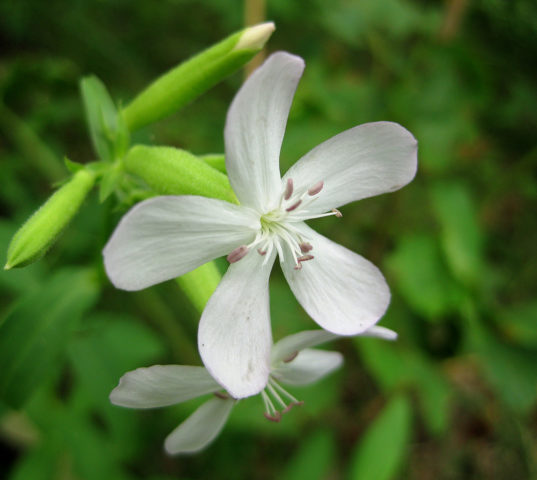
Medicinal properties of medicinal soapwort
The medicinal soap plant has a beneficial effect on the body when used correctly. In particular, the herb:
- has an expectorant effect when coughing;
- helps to cope with bacterial processes and inflammation;
- accelerates the outflow of bile;
- relieves high temperature due to diaphoretic properties;
- promotes healing of wounds and cuts;
- disinfects skin lesions;
- has a diuretic effect and helps with edema;
- relieves heartburn and eliminates nausea;
- relieves whooping cough and bronchitis;
- relieves pain and inflammation in arthritis and gout;
- eliminates symptoms of pharyngitis, flu and SARS;
- strengthens immune resistance;
- cleanses the blood and strengthens blood vessels;
- normalizes metabolic processes;
- helps with increased gas production in the intestines;
- relieves toothache and stops bleeding in case of gum disease.
Outwardly, soap-based remedies are used for psoriasis, eczema and lichen. Medicinal ointments from the roots and leaves of the plant help to cope with inflammation and soften irritated skin.
Preparation and application methods
Medicinal soapwort is very popular in folk medicine. Decoctions and infusions with strong soothing, cleansing and anti-inflammatory properties are prepared from the roots and green parts of the plant.
Infusion
The water infusion of the plant is especially recommended for use in skin diseases - scabies, lichen, eczema. A product is prepared according to the following algorithm:
- Grind a large spoonful of dry, soapy herb.
- Pour the raw materials with 300 ml of boiling water in a thermos or glassware.
- Cover the container and wrap it with a towel to retain heat.
- Leave for four hours and filter.
You need to use the infusion, 50 ml twice a day, shortly before meals. It is necessary to prepare the product again every five days.
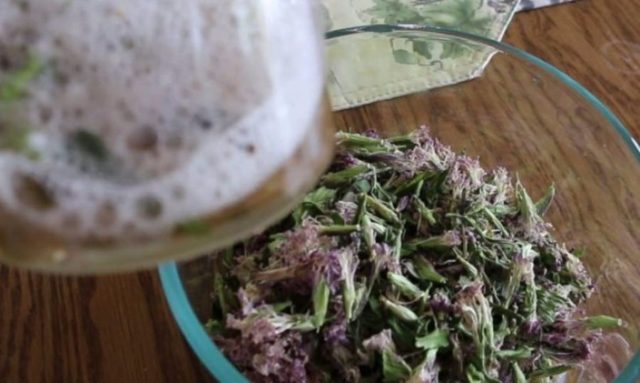
Decoction
A decoction of medicinal soapwort is used for intestinal disorders and flatulence, as well as for diseases of the respiratory tract. The recipe looks like this:
- Grind 15 g of dry grass and pour a glass of boiling water.
- In a water bath, heat the product for 15 minutes.
- Remove the container from the stove and insist under the lid for half an hour.
- Filtered.
You need to take a decoction of 125 ml up to four times a day in between meals.
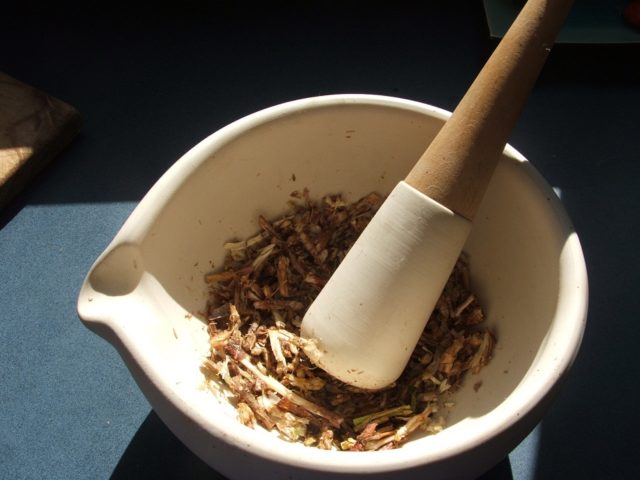
Tea
To speed up metabolism and restore intestinal microflora, you can use tea based on a medicinal plant. They do it like this:
- Grind the grass and roots of soapwort in the volume of a large spoon.
- Pour the ingredients with a glass of hot water.
- Leave at room temperature under the lid for three hours.
- Put on the stove and bring to a boil.
- Cool and filter through a sieve and cheesecloth.
They drink herbal soap tea in the same way as a regular drink - 250 ml per full stomach. Up to two cups of the product are allowed per day.
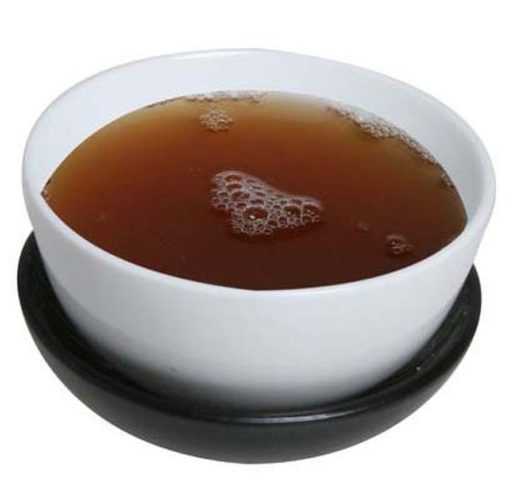
Application of soapwort
It is recommended to use decoctions and infusions of soapwort for a wide range of diseases. The herb is beneficial for ailments of the digestive system and skin inflammations, colds and bacterial processes of the mouth and throat.
With edema
Medicinal soapwort has pronounced diuretic properties and helps to remove excess fluid from the tissues. The plant is applied as follows:
- The dry root of the herb is crushed in a volume of 6 g.
- Pour raw materials with a glass of water and bring to a boil on the stove.
- Boil for five minutes and cool.
The filtered remedy is consumed in a large spoonful three times a day. Medicinal soapwort additionally helps to remove sand and small stones from the kidneys.
When coughing
The mucolytic properties of medicinal soapwort relieve bronchitis and whooping cough and promote productive expectoration. Healing infusion is prepared as follows:
- Grind 5 g of dry stems and roots of the plant.
- Steamed with a glass of boiling water and left under the lid for three hours.
- Over time, filter through folded gauze.
Drink infusion of 250 ml twice a day. It is best to drink the remedy on an empty stomach or in between meals.
With pneumonia
Medicinal herb soapwort fights bacterial processes with pneumonia and accelerates recovery. The infusion for therapy is prepared as follows:
- Pour a small spoonful of chopped grass into a glass container.
- Pour a glass of clean cool water.
- Cover the container with a lid and leave for eight hours at room temperature.
- Filter from sediment.
You need to drink the product 60 ml on a full stomach up to four times a day.

With rheumatism
The anti-inflammatory properties of soapwort help relieve pain and swelling in rheumatism and other joint diseases. Traditional medicine offers the following recipe:
- A small spoonful of dry plant roots is steamed with 250 ml of boiling water.
- Warm up over low heat for 15 minutes.
- Add clean water to the original volume.
- Cool to a warm state and filter.
You need to take the remedy on a full stomach in a glass up to four times a day. In total, treatment is continued for up to two weeks in a row, and then they take a break. In acute rheumatism, the course of therapy can be repeated up to two times.
With obesity
Medicinal soapwort removes toxins from the body, cleanses the intestines and helps to get rid of extra pounds. The plant normalizes metabolic processes and slows down the appearance of body fat, thereby helping to maintain a healthy body weight. If you have a tendency to gain weight, you can prepare the following decoction:
- The soap root is crushed in a volume of 10 g and filled with 200 ml of hot water.
- Bring to a boil and reduce heat to low.
- Warm up the product for 15 minutes under the lid.
- Remove from the stove and insist closed for an hour.
The filtered remedy is taken in full, in just a day you need to drink three glasses of a useful broth. They use it for two weeks in a row, and then take a break for ten days and repeat the course twice more.
With herpes
Medicinal soapwort has antiviral properties and helps to quickly eliminate herpes sores on the lips. The following drug is prepared for therapy:
- Grind two large spoons of plant roots and pour 500 ml of hot water.
- Boil for five minutes and leave under the lid for another hour.
- Filter from sediment.
The resulting product is used to wash the affected areas up to five times a day. With regular use, soapwort strengthens local immunity and protects against the recurrence of herpes.
With gallstone disease
Medicinal soapwort accelerates the outflow of bile and helps dissolve small stones. Traditional medicine recommends preparing a healing collection:
- Mix 5 g of roots of medicinal soapwort and 10 g of St. John's wort.
- Add 3 g of celandine herb to the ingredients.
- Measure out a large spoonful of the mixture and steamed with a glass of boiling water.
- Stand under the lid for half an hour.
The filtered drink is taken in full on an empty stomach. You need to prepare the drug three times a day.
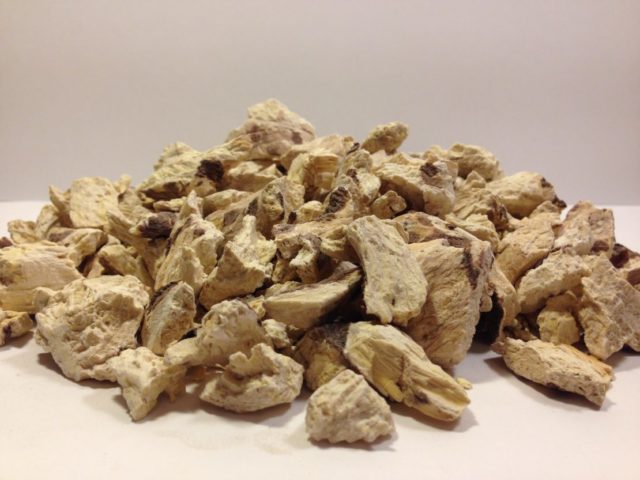
With furunculosis
Useful soapstone helps to dissolve abscesses and cleanses the skin with furunculosis. For therapy, make the following infusion:
- A small spoonful of crushed plant roots are poured with a glass of hot water.
- In a closed form, the product is insisted for four hours.
- Pass the finished product through cheesecloth.
You need to take a drink 30 ml three times a day after meals. With the same remedy, it is simultaneously recommended to wash the affected areas on the skin and put medicinal lotions.
With hepatitis
The medicinal soap flower has strong cleansing and regenerating properties. The plant can be used for hepatitis to relieve inflammation and fast liver regeneration. The tool is prepared as follows:
- About 30 g of dry raw materials are poured into 1 liter of liquid.
- The product is boiled over medium heat for five minutes.
- Remove from the stove and leave under the lid to cool.
The finished broth is filtered and divided into three equal portions, and then taken throughout the day.
With angina
Medicinal soapwort helps relieve inflammation in the throat with angina and promotes a quick recovery. Means for internal use are prepared according to the following algorithm:
- About 10 g of dry rhizomes of the plant are steamed with 250 ml of fresh boiling water.
- On low heat, heat the product for no more than five minutes.
- Cool to a warm state and pass through cheesecloth.
The resulting broth is divided into three portions and consumed during the day between meals. You can also gargle with the product - this will help disinfect the mucous membranes and relieve pain.
Application in cosmetology
The root of the medicinal soapwort is appreciated not only by traditional medicine. Broths and infusions are used in cosmetology to care for curls. Plant-based products help eliminate dandruff without the use of pharmaceuticals and normalize the oily scalp, restore hair volume and natural shine.
Especially popular is the natural shampoo made from medicinal soap, which is prepared according to this recipe:
- Pour 500 ml of boiling water into a large spoonful of finely chopped rhizomes.
- Leave under a tight lid for 40 minutes.
- Put on the stove and bring to a boil.
- Boil for ten minutes.
The strained solution has a slightly viscous consistency and gives a soft foam when used. Apply it in the same way as regular shampoo. If desired, it is allowed to mix the soapwort decoction with the usual hygienic product, but the effect in this case will be weaker.
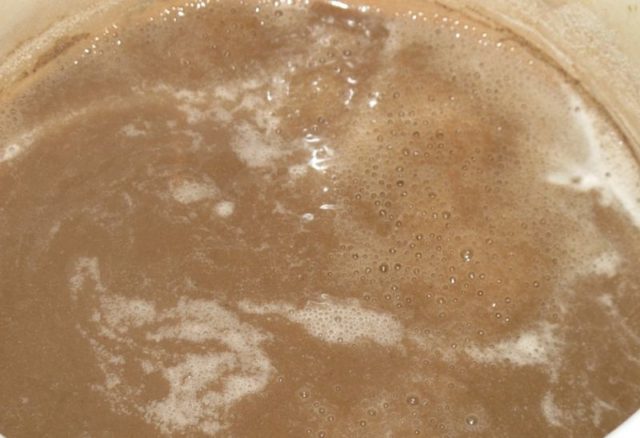
Contraindications
The valuable properties of medicinal soapwort are not the same for everyone. In some conditions, it is better to refuse to use the plant, namely:
- during pregnancy;
- during lactation;
- under the age of 12;
- with individual intolerance;
- with large stones in the kidneys and gallbladder;
- with acute pancreatitis and stomach ulcers.
The plant contains toxic substances that can lead to the development of side effects. An overdose of soapwort is accompanied by:
- nausea;
- diarrhea;
- vomiting;
- headache;
- abdominal cramps;
- convulsions;
- increased salivation;
- characteristic sweetish or burning taste in the mouth.
If the listed symptoms and signs appear, you should perform a gastric lavage and consult a doctor immediately.
Collection and procurement
The leaves and buds of the medicinal soapwort are harvested during the flowering period, the roots are dug up in late autumn after the aerial parts of the plant wither. Raw materials are washed from contamination in running water and laid out in a thin layer on a baking sheet under a canopy or in a well-ventilated warm room. After the moisture has evaporated, the grass and roots are distributed in paper bags or cloth bags and put away in a cool, dry place, out of the sun.
You can speed up the workpiece if you use an electric dryer or oven. But the devices need to be heated up to a maximum of 50 ° C, otherwise valuable substances will be destroyed in the composition of the grass.
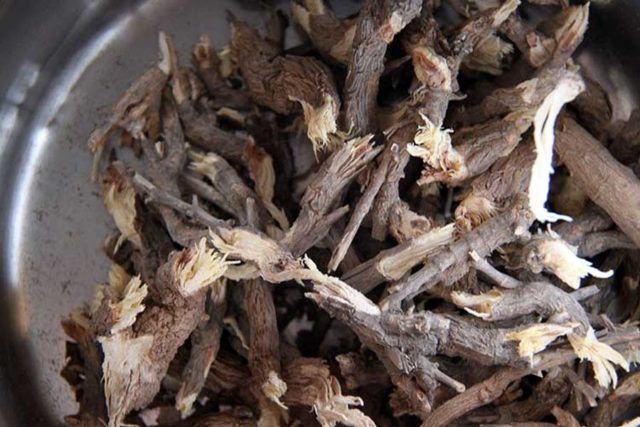
Conclusion
Medicinal soap is a useful plant with good anti-inflammatory and cleansing properties. The herb is often used for skin irritations and digestive ailments, for dandruff and hair loss. In the process of treatment, it is important to remember the toxicity of the plant and observe small dosages.

